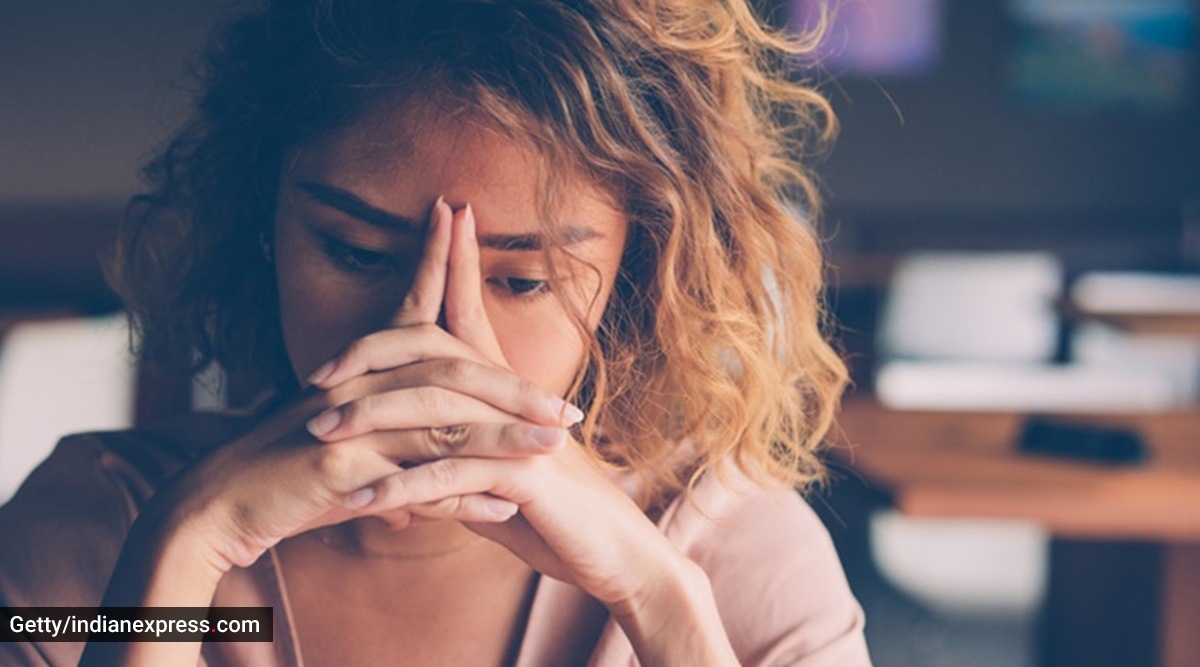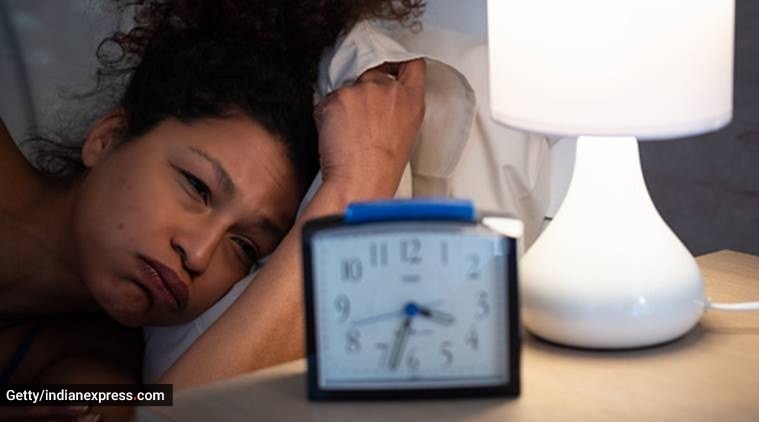Besides following Covid-appropriate behaviour, psychiatrist Dr Samir Parikh suggested that one must try and not “look into social media too .
 We are living in challenging times that consume a lot of our mental energy and focus.
We are living in challenging times that consume a lot of our mental energy and focus.
With the number of cases rising each day, near and dear ones getting affected, and amid lockdowns, stress and anxiety are at an all-time high in the second wave of Covid 19. “The second wave is severe not just because of the toll it’s taking due to the huge population being affected but also because it suddenly came when everything seemed to be returning to normal. Vaccine felt like a respite but there are millions yet to be vaccinated and people still haven’t recovered from financial and personal losses,” Dr. Jyoti Kapoor, senior psychiatrist and founder, Manasthali, told.
In a recently released insight by Practo in March 2021, the most discussed concerns of women in non-metro cities included depression, anxiety, and panic attacks while the most discussed concerns of women in metro cities were stress, obsessive-compulsive disorders, eating disorders, and mood disorders.
What is leading to mental health concerns?
According to World Health Organization (WHO), “fear, worry, and stress are normal responses to perceived or real threats, and at times when we are faced with uncertainty or the unknown. So it is normal and understandable that people are experiencing fear in the context of the COVID-19 pandemic”
Added to the fear of contracting the virus in a pandemic such as COVID-19 are the significant changes to our daily lives with our movements being restricted in support of efforts to contain and slow down the spread of the virus, as per WHO. Faced with new realities of working from home, temporary unemployment, home-schooling of children, and lack of physical contact with other family members, friends, and colleagues, it is important that we look after not just physical health but mental health too.
In circumstances like these, how can people take care of their mental health? Here’s what mental health experts tell us.
Besides following Covid-appropriate behavior, psychiatrist Dr. Samir Parikh suggested that one must try and not “look into social media too much”. “Social support is the key – share and keeps talking to people,” he said while mentioning that one needs to keep a healthy lifestyle, have regular sleep, exercise, do yoga, do reading, listen to music and take multiple breaks.
The only way to manage stress in these times is to focus on living in the present, said Dr. Kapoor.
*Avoid focusing on statistics that serve no purpose for the common man. All one needs to do is focus on their own self which means the same old stringent measures of wearing a mask and staying indoors.
*Follow a disciplined routine. Discipline helps the brain to focus on the task at hand and not stray away from unnecessary negative thoughts.
*Pursue a creative activity. Even if work from home is taxing, find time to indulge in hobbies you enjoy. It takes away the stress of achieving results for work. The process itself induces happy chemicals.
*Exercise releases endorphins which are natural pain killers. It also gives a sense of accomplishment while keeping us physically fit and improving immunity.
*Adequate sleep and sleep-wake pattern allows for the balance of neurochemicals to be restored so the emotional exhaustion and burnout are low.
*Healthy diet is always important to improve physical and psychological stress tolerance.
*Connect with family and friends. Don’t get into the same old Corona-related speculations; talk about other things like sports, science, universe.
*Read whatever interests you, go beyond newspaper; there is so much to choose from.
*Focus on all the things we still have. Sooner or later, things will change. We have a better understanding of diseases today than we ever had. Patience is a good virtue to learn today and forever.
*” Last but not least- be grateful. We will survive and in the process will also build a better world. So many things are changing for good,” said Dr. Kapoor.
Finding it difficult to sleep? Getting a good night’s sleep is essential.
Getting a good night’s sleep is essential.
According to a new survey from the American Academy of Sleep Medicine, a third of Americans are sleeping worse than they did before the pandemic. About 30 percent say they have difficulty falling asleep or staying asleep. One in five also say they’ve experienced more disturbing dreams during the pandemic. This so-called “COVID-somnia” can be brought on by fears about the coronavirus, concern for our loved ones, economic worries, and limited social contact, said Dr. Malik Merchant, consultant psychiatrist and psychotherapist, Wockhardt Hospital, Mumbai Central.
Some Factors that affect the amount and quality of sleep
-increased stress and anxiety
-an uptick in screen time
-lack of exercise
-increase in the use of tobacco and alcohol also READ |The second wave of COVID is affecting more children; know more
Here are some tips to help you get a good night’s sleep during stressful times
Maintain a regular sleep schedule
Even if your schedule has changed because work or school is remote, or you aren’t working, you should aim to get at least seven hours of sleep a night and go to bed and get up about the same time every day, including weekends.
Turn off electronics
Limiting your screen time helps your body prepare for sleep while avoiding the news and social media before bed can reduce stress. Turn off your electronics at least 30 minutes before bedtime.
Follow a relaxing nightly routine
Start unwinding at least 30 minutes before your bedtime with quiet activities like reading or meditating, or take a warm bath or shower to help you relax.
Create a peaceful sleeping environment. Also, do visit Plus Followers 4 APK.
A cool, dark room is best for sleeping. Keep the TV off and store smartphones and other electronics outside your room.
“Good sleep habits will help restore the quality sleep. And that’s better for our overall physical and mental health,” said Dr Merchant.
Wants to see my more work do visit apksall.com.

